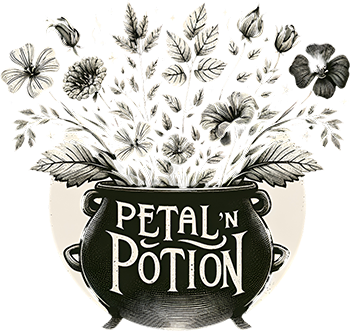E c h i n a c e a
Echinacea, commonly known as coneflower, is a group of flowering plants in the daisy family.
Native to North America, it has been used for centuries by indigenous peoples and in traditional medicine to treat various ailments,
particularly those related to the immune system.
Benefits
- Immune Support: Enhances immune function and helps the body fight off infections such as colds and flu.
- Anti-Inflammatory: Reduces inflammation, benefiting conditions like arthritis and other inflammatory diseases.
- Antioxidant Properties: Provides antioxidants that protect cells from oxidative stress and damage.
- Respiratory Health: Helps alleviate symptoms of respiratory conditions such as colds, bronchitis, and sinus infections.
- Wound Healing: Promotes wound healing and treats skin conditions such as eczema, psoriasis, and minor cuts or burns.
- Pain Relief: Alleviates pain associated with headaches, toothaches, and sore throats.
- Digestive Health: Supports digestion and alleviates digestive issues such as indigestion and gastrointestinal infections.
- Anti-Anxiety: May have mild anxiolytic effects, helping to reduce anxiety and stress.
- Antimicrobial Properties: Exhibits antibacterial, antifungal, and antiviral effects, helping to prevent infections.
Active Compounds
- Alkylamides: The primary active compounds responsible for echinacea’s immune-boosting and anti-inflammatory properties.
- Caffeic Acid Derivatives (Chicoric Acid): Provide antioxidant protection and support overall health.
- Polysaccharides: Known for their immune-modulating effects.
- Flavonoids: Additional antioxidants that support overall health.
- Essential Oils: Contribute to the plant’s therapeutic effects, including antimicrobial properties.
- Phenolic Compounds: Offer further antioxidant and anti-inflammatory benefits.
Who Should Avoid This
- Individuals with Allergies: Those allergic to echinacea or related plants in the daisy family should avoid it.
- Pregnant and Nursing Women: Generally considered safe, but it is advisable to consult a healthcare provider before use.
- Individuals with Autoimmune Diseases: Should use caution, as echinacea may stimulate the immune system and exacerbate conditions.
- Individuals on Medication: Particularly those taking immunosuppressants or caffeine should consult a healthcare provider to avoid interactions.
- Children: Consult a healthcare provider before giving echinacea to young children.
Warnings
While echinacea offers numerous health benefits, some precautions and potential side effects should be considered:
- Allergic Reactions: Can cause allergic reactions, particularly in individuals allergic to plants in the daisy family.
- Gastrointestinal Issues: High doses may cause stomach upset, nausea, or diarrhea.
- Pregnancy and Breastfeeding: Generally considered safe, but consult a healthcare provider before use.
- Autoimmune Diseases: Use caution, as echinacea may stimulate the immune system.
- Interactions with Medications: May interact with certain medications, including immunosuppressants and caffeine.
Usage Guidelines
Echinacea can be used both short-term and long-term, depending on the condition being treated. For acute issues such as cold and flu symptoms, it is typically used until symptoms improve. For ongoing benefits such as immune support or general wellness, longer-term use may be appropriate but always under the guidance of a healthcare professional. Always consult with a healthcare provider to determine the correct dosage and duration for your specific needs.
